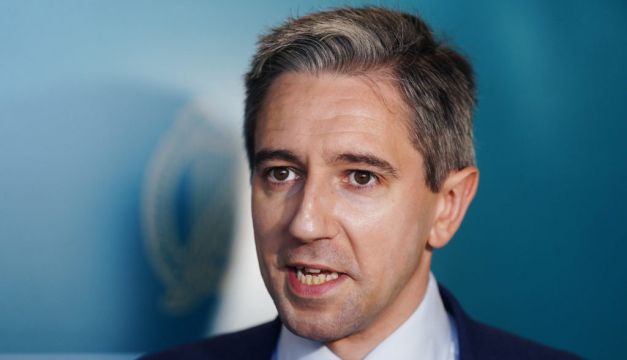Updated: 12.45pm
Minister for Higher Education Simon Harris has said that the Government is “getting pretty low on patience at this stage” with the drip feed of information from RTÉ management which was “doing extraordinary damage” to the broadcaster.
“We need RTÉ to get back to commissioning drama, not being the drama,” he told RTÉ radio’s Morning Ireland.
The Government values RTÉ and public service broadcasting, so it was “extraordinarily important” that the new director general make it very clear from day one that changes are required, he said.
“He needs to do something that I am shocked and flabbergasted has not happened yet, he needs to talk to staff, he needs to talk directly to the people working in this organisation who have been let down.
“The fact that two weeks in there hasn’t been engagement with staff is not acceptable to me, I think it’s not acceptable to the people of this country, who value RTE and value the work done here.”
Mr Harris said that Minister for Media Catherine Martin is going to send in people next week “to get the facts”.
“Because either the people who have gone before the Oireachtas committees have not been able to or haven’t been willing to share the information, that’s for others to judge, it is not tenable that you continue to have the drip feed.
“So early next week, for the first time ever, forensic accountants will be appointed to come in and look at the books, they’re going to start with the barter accounts and any other off balance sheet payments that they come across, any other meetings.”
Register of interests
Basic things that need to happen in RTÉ, he said. “There needs to be a register of interests, that’s 20 years overdue, that’s just common practice in most workplaces, there needs to be a real look at the difference between an executive board and a board, the governance structure, we need RTÉ, we need public service broadcasting.”
The Government will make a decision on the TV licence, “but you can’t have a situation where RTÉ executives are crying the poor mouth on the one hand, and on the other hand are being flahulach with taxpayers’ money.
“We’re fully committed to RTÉ and the value of its work but RTÉ management have to restore confidence of the Government, of the people of Ireland, to ensure that it’s well run, that’s the challenge for Kevin Bakhurst it’s a huge opportunity to get this right, for some good to come from this mess.”
Meanwhile, the chairperson of Coimisiún na Meán (Media Commission), Jeremy Godfrey has expressed deep concern about the pay controversy in RTÉ because of the importance of public service broadcasting
“Public service broadcasting is incredibly important to society. It pulls us together as a nation. It provides us with content that reflects and shapes who we are as a society. And very importantly, it provides us with authoritative, unbiased, objective news that's a counterweight to disinformation online.
“But you can't have thriving public service broadcasting unless you have a trusted public service broadcaster. And the continuing revelations, as the incoming Director-General said yesterday, have severely damaged trust. And it's great that his first priority and main priority is going to be to restore trust. And the investigations and reviews commissioned by the Minister will be part of that. So we are certainly very supportive of that.”
Coimisiún na Meán, as the media regulator, has a very specific statutory role, he told RTÉ radio’s Morning Ireland. Each year it reviews and evaluates RTÉ’s performance commitments, whether public funding was adequate and then to make recommendations to the Minister about whether there should be changes to the licence fee.
We'll have to consider whether it's appropriate to recommend any change to the licence fee until trust has been restored in RTÉ.
“In this context, we are concerned about the delivery of the public service commitments. In particular, one of the commitments is to put the audience at the heart of decision-making. Another of the commitments is to protect and strengthen public service broadcasting and as part of that, to be open and transparent and accountable and to be efficient and effective. And I think the revelations place doubts over all those issues.
“We will be wanting to look at them in some detail to verify whether or not RTÉ has met those commitments to the extent to which they haven't, how they feel and what might be done about it. And then we'll have to consider whether it's appropriate to recommend any change to the licence fee until trust has been restored in RTÉ.”
The Commission will liaise with the Department currently coordinating reviews into RTÉ and then “if necessary piggy back” on that work “so that we can reach our conclusions as efficiently as possible".
Mr Godfrey explained that the Commission’s remit was advisory.
“We're not an auditor, we're not an investigator, we're not part of the assurance mechanism for corporate governance. That's for the board, that's for the Minister. The Minister has the powers to appoint accountants. And as we know, she's done that. So it is more of an advisory role.
"We do get consulted on what the governance commitments should be so we can again advise on that. And RTÉ will be preparing a new five-year strategy. It will be publi'shed potentially revising its public service statement. So we do bring influence into that, but that's the extent of our role in relation to the public service remit.”
'Frank and honest'
Meanwhile, the general secretary of the National Union of Journalists (NUJ) in Ireland, Seamus Dooley described a meeting on Friday morning with Mr Bakhurst as “frank and honest” and a “positive engagement”.
“Genuine regret” had been expressed by Mr Bakhurst at the way that staff in RTÉ had been impacted, and he had offered “a firm commitment” to work with staff and unions to restore faith and confidence in RTÉ, Mr Dooley told RTÉ radio's Today with Claire Byrne show.
Mr Dooley added that Mr Bakhurst had been left under no illusion about the depth of feeling among staff.
The incoming director general said he would meet with staff, not just at Montrose, but around the country, Mr Dooley said, adding the timing of these meetings had yet to be determined because his schedule would be shaped by ongoing parliamentary debates.
Asked if relationships between RTÉ management and staff could be rebuilt, Mr Dooley said their discussion took place in the room in which staff and unions had been lied to in 2019 by RTÉ management. Mr Bakhurst had indicated a desire for openness, transparency and a commitment to public service broadcasting.
“We can do business with him,” Mr Dooley said, but great work will have to be done to win back the trust of staff, he added.
“Trust is easier to break than to restore.”







